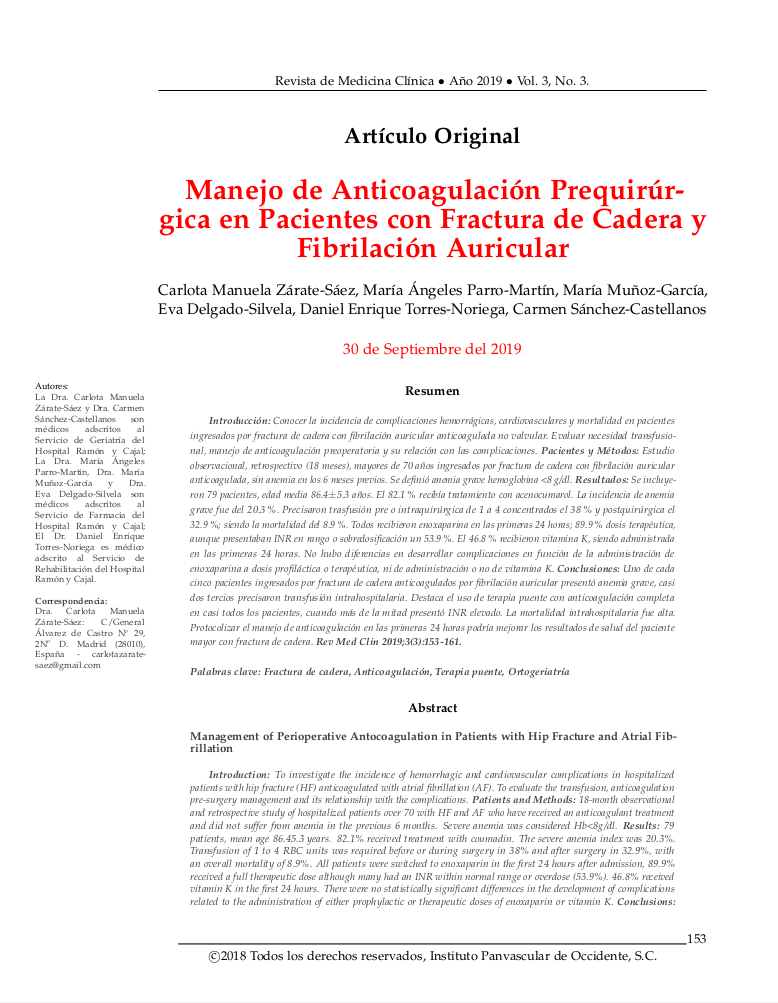Abstract
Aim: To investigate the incidence of hemorrhagic and cardiovascular complications in hospitalized patients with hip fracture (HF) anticoagulated with atrial fibrillation (AF). To evaluate the transfusion, anticoagulation pre-surgery management and its relationship with the complications.
Methods: 18-month observational and retrospective study of hospitalized patients over 70 with HF and AF who have received an anticoagulant treatment and did not suffer from anemia in the previous 6 months. Severe anemia was considered Hb<8g/dl.
Results: 79 patients, mean age 86.4±5.3 years. 82.1% received treatment with coumadin. The severe anemia index was 20.3%. Transfusion of 1t-4 RBC units was required before or during surgery in 38% and after surgery in 32.9%, with an overall mortality of 8.9%. All patients were switched to enoxaparin in the first 24 hours after admission, 89.9% received a full therapeutic dose although many had an INR within normal range or overdose (53.9%). 46.8% received vitamin K in the first 24 hours. There were no statistically significant differences in the development of complications related to the administration of either prophylactic or therapeutic doses of enoxaparin or vitamin K.
Conclusions: One in five hospitalized patients for HF on anticoagulant treatment due to AF presented severe anemia and almost two thirds required intrahospital transfusion. Notably, complete anticoagulation bridge therapy was used in almost all patients, when more than half showed high INR. In-hosspital mortality was high. Registering the management of anticoagulation in the first 24 hours may improve health outcomes and the safety of the elderly patient with hip fracture.

This work is licensed under a Creative Commons Attribution-NonCommercial-NoDerivatives 4.0 International License.
Copyright (c) 2019 Clinical Medicine Journal

